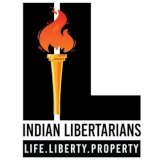Privatization
| Definition |
|---|
| Privatization describes the process by which a piece of property or business goes from being owned by the government to being privately owned. |
Do Libertarians support Privatization? It depends. Libertarians want to privatize everything but libertarians don't support all methods of privatization.
Privatization has become a shorthand way of describing the process of selling public or state assets to corporate interests for cheap. This subcategory of Privatization can be termed as Neoliberal Privatization. Libertarians (should) oppose this. Some libertarians tolerate this method of privatization on utilitarian grounds, or because it is usually accompanied with removing legal barriers to entry.
| Libertarian privatization would mean returning ownership and control of those assets to those who were forced to pay for it (taxpayers), and/or to those who currently occupy it (workers or residents) in the form of private, negotiable shares. This subcategory of privatization can be called Mutualization. |
Although Mutualization sounds very similar to some forms of socialism but its not. Here ownership is not being transferred to collectives or workers holistically (in the abstract). Instead ownership here is quantifiable and sellable in the form of shares. Even today publicly traded corporations may be partly owned by employees in the form of shares but that is hardly considered socialism.
A note on why libertarians are often caught supporting Neoliberal Privatization.
Who really owns State assets?
Libertarians do not consider the State to be the legitimate owner of so-called State or Public assets. Libertarians do not consider property ownership (public or private) to be legitimate simply because it has been declared as such by the government. This form of property is called de-jury property.
While it is true that the State has invested capital/money into State assets but the source of that capital is taxes. Taxes are forcefully collected by the state from tax payers without any prior agreement between the two. There is also no way to opt out of paying your taxes. Under such conditions each tax payer should be considered a part owner of the State's asset.
Libertarians consider Commons of a locality to be homesteaded by the locals of that area. Commons include public properties like roads, grasslands, lakes, rivers, forests etc. While the State invests in developing and maintaining commons the source of that capital is often municipal taxes forcefully collected from the locals themselves.
State organizations in which consumers directly invest like Employees' Provident Fund Organisation or Life Insurance Corporation should similarly be considered to be owned by the consumers themselves, unless they are also subsidized through taxes (in which case the tax payers are also considered part owners).
If none of the above situations apply then libertarians consider the asset to be owned by the individuals currently occupying and using the asset, which is often the workers working there.
| Libertarian Privatization results in a share being given (not sold) to the individuals considered to be owners as above which varies from case to case. |
This also should explain why Libertarians (should) oppose the Neoliberal form of Privatization. It goes without saying that no one can legitimately sell that which they do not own, not even the State.
| Sale of State assets to corporate interests for cheap (due to it often being a distress sale) should be considered injustice to the real owners of those assets. |
